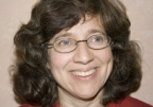Recent News
Computer scientist wins Athlete of the Year Award for adaptive skiing technique
May 29, 2025
Hand and Machine Lab wins 2 awards at CHI conference
May 15, 2025
Dissertation defense, May 12: Jannatul Ferdous
May 9, 2025
Dissertation defense, April 9: Abir Islam
April 3, 2025
News Archives
Elections, Public Policy and Science: A Natural Place for Many Stove Pipes
September 17, 2010
- Date: Friday, September 17, 2010
- Time: 12noon — 12:50 pm
- Place: Centennial Engineering Center, Room 1041

Dr. Lonna Rae Atkeson
Professor Department of Political Science University of New Mexico
The visible election problems in New Mexico, Ohio, and especially Florida in the 2000 presidential election led political scientists, as well as statisticians, computer scientists, law professors, anthropologists, political activists and election administrators to ask important questions about election administration. The questions stem from a normative desire to improve the election system to maintain system legitimacy and to ensure that elections are administered fairly and without fraud. Academics are pressing the election community to base their election reform policies on empirical information about the process and its impact on voters. Therefore, we wish to know how voters experience the election process, how administrators run elections, and how secure the voting process is from fraud and coercion. Over the last several elections in New Mexico, we have engaged in a variety of research activities to begin answering these fundamental questions. Our activities include: election observations, voter surveys, poll worker surveys, examining residual votes, election audit observations, and a pilot post election audit project. My talk will focus on our pilot post election audit work. In the winter of 2008, we counted nearly 50000 ballots multiple times by machine and by hand and examined the differences both within and between counting methods. We found that machines and humans both make errors in counting, though they appear random. This work informs both the public debate on the accuracy and integrity of a particular paper ballot voting system and on the public policy process by piloting procedures and making specific recommendations for implementing post election audits. Given the large array of equipment, organization, management, education, etc that is involved in the running of election more interdisciplinary and cross-disciplinary research work is needed to gain perspective and determine the best election reform policies.
Bio: Dr. Lonna Rae Atkeson is a Professor and Regents’ Lecturer in the Political Science Department at the University of New Mexico. She is also currently director of the Center for the Study of Voting, Elections and Democracy. Her expertise is in the area of campaigns, elections, election administration, public opinion and political behavior and has written numerous articles, book chapters, monographs and technical reports on these topics. Her research emphasizes the role contextual factors play in shaping attitudes and behaviors of political actors. She was named an “Emerging Scholar” by the Political Parties and Organizations Section of the American Political Science Association and has received repeated funding from the National Science Foundation, the Pew Charitable Trusts, and the JEHT Foundation. She holds a BA in political science from the University of California, Riverside and a Ph.D. in political science from the University of Colorado, Boulder.

